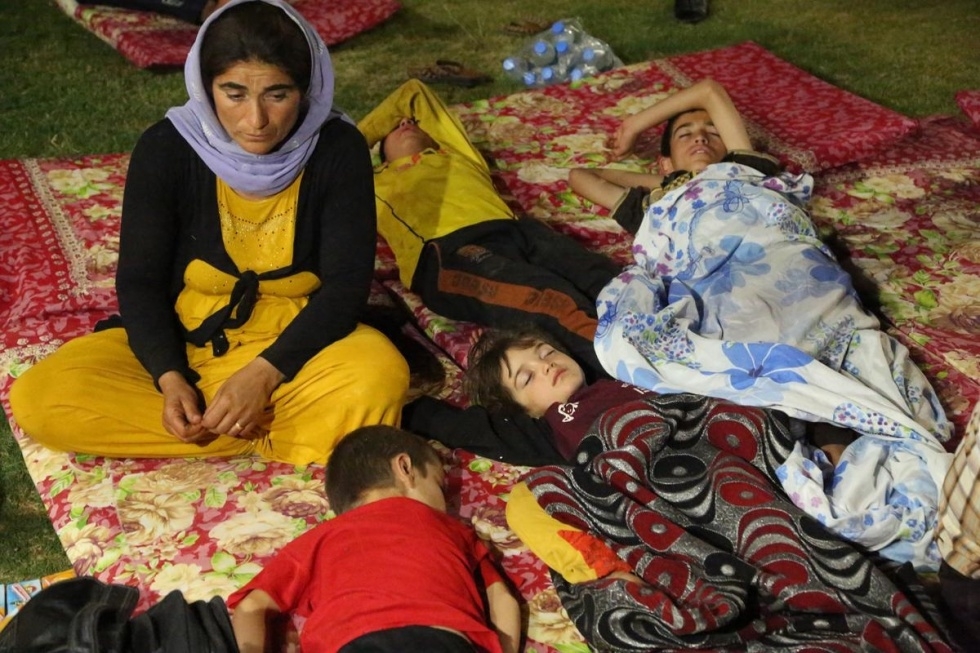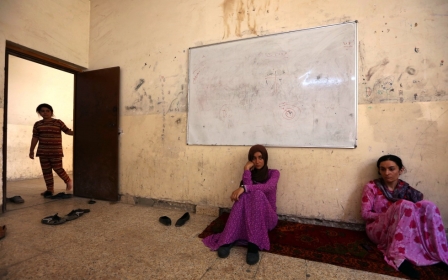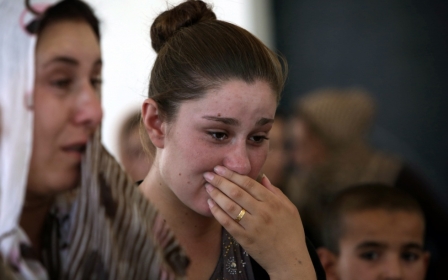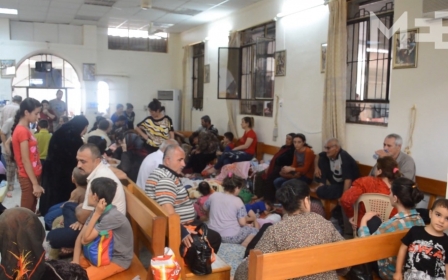One million Iraqis displaced as US strikes IS militants

The US begun an air offensive against Islamic State militants on Friday as the UN warned that more than one million Iraqis have been displaced by the current upswing in violence.
Hundreds of thousands have been forced to flee in the last week alone, as IS fighters have made inroads into western and northern parts of the country.
Iraq’s religious minorities, namely the Christian and Yazidi communities, have been particularly hard-hit, prompting US President Barack Obama to voice concerns about genocide, and pushing the international community to step up its involvement.
Two US aircraft bombed IS positions earlier in the day, making this the most significant raid since the United States withdrew from Iraq in December 2011.
The Pentagon said that the strike in northern Iraq, near the Kurdish capital Erbil, was carried out by F/A-18 aircraft and was authorised after artillery fire erupted near US personnel, the Pentagon said.
"As the president made clear, the United States military will continue to take direct action against [IS] when they threaten our personnel and facilities," Pentagon spokesman Rear Admiral John Kirby said.
US Secretary of State John Kerry also stressed that more had to be done to counter the IS treat.
Its "campaign of terror against the innocent, including the Yazidi and Christian minorities, and its grotesque targeted acts of violence show all the warning signs of genocide," he said.
The Iraqi’s swiftly welcomed the move, saying that they expected US aerial intervention to turn the tide in their favour.
Baghdad has been on the defensive since the start of the year, when it lost control of Fallujah in south-western Iraq, but government forces have suffered serious setbacks in recent months as IS-led Sunni forces have swept through the country.
"There will be huge changes on the ground in the coming hours," Iraq’s Lieutenant General Babaker Zebari told AFP.
"The US airforce is targeting Daash [Islamic State] bases in Makhmur and in the Sinjar area," he said.
"The operation is due to continue in Iraqi towns controlled by Daash," he said, without specifying which ones.
Humanitarian support
The US on Friday also began airdropping emergency humanitarian supplies to the tens of thousands of displaced Iraqis who have been unable to reach safety.
Following the drops, the UN announced that it would begun preparations for a humanitarian corridor, designed to allow stranded civilians to escape to safety.
"Now that air drops have started, the UN in Iraq is urgently preparing a humanitarian corridor to allow those in need to flee the areas under threat," the top UN envoy in Iraq, Nickolay Mladenov, said in a statement.
The UK is expected to begin its own humanitarian airdrops in the “next couple of days” with Prime Minister David Cameron saying that he was "extremely concerned by the appalling situation in Iraq and the desperate situation facing hundreds of thousands of Iraqis".
However, the UK will not provide military backing for the US strikes, Cameron said.
France too is mulling stepping up its assistance.
"France will examine with the United States and all its partners what actions can be taken to jointly offer the necessary support to end the suffering of the civilian population," French President Francois Hollande said in a statement.
France is "ready to play a full part" Hollande added, without offering further details about what this support could entail.
New MEE newsletter: Jerusalem Dispatch
Sign up to get the latest insights and analysis on Israel-Palestine, alongside Turkey Unpacked and other MEE newsletters
Middle East Eye delivers independent and unrivalled coverage and analysis of the Middle East, North Africa and beyond. To learn more about republishing this content and the associated fees, please fill out this form. More about MEE can be found here.




